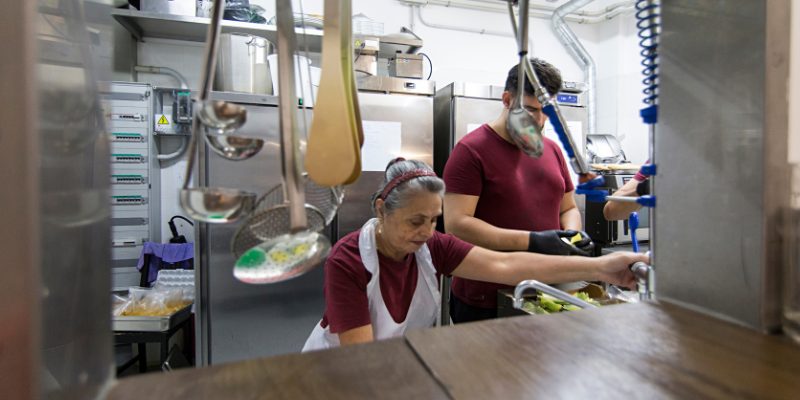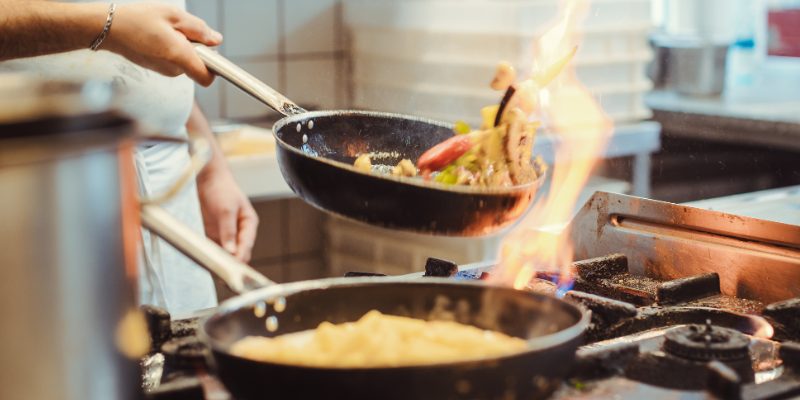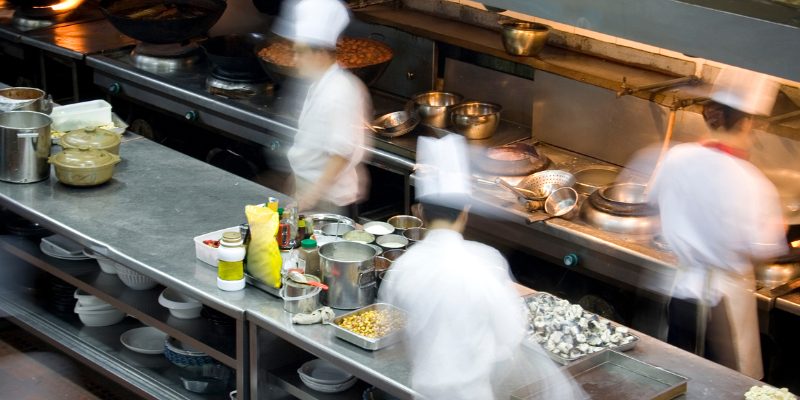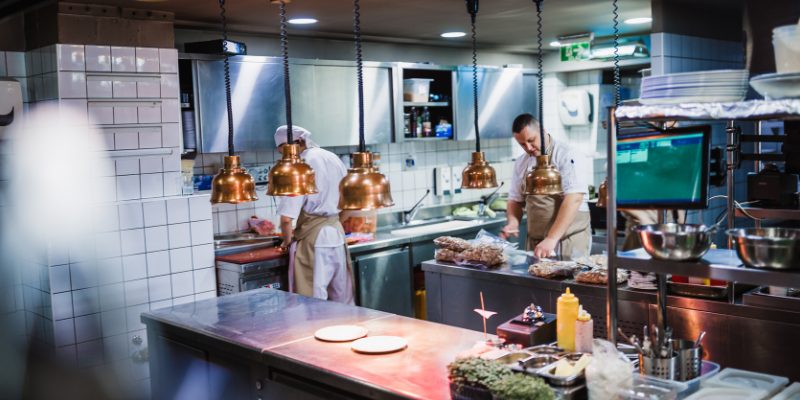Table of Contents
ToggleFinding a reliable Miami restaurant supply is one of the biggest challenges you may face if you run a restaurant in Dade County.
The Miami restaurant supply market can be overwhelming, with a plethora of options to choose from.
In this blog post, we will explore how to lower your costs by tapping into reliable Miami restaurant supply options.

Understanding the Miami Restaurant Supply Landscape
Navigating the bustling Miami restaurant supply landscape requires a deep understanding of the unique dynamics that define this market.
The city’s rich tapestry of culinary traditions and trends drives a constant demand for a diverse array of restaurant supplies, from the latest in restaurant kitchen technology to bespoke table settings that capture the essence of Miami’s vibrant culture.
This demand has given rise to a competitive market filled with suppliers each offering distinct advantages and challenges.
The spectrum of suppliers in Miami ranges from large-scale distributors specializing in a broad array of products to niche providers focused on specific segments of the market, such as sustainable goods or high-end kitchen equipment.
Find suppliers who closely align with their operational needs and values, whether they prioritize cost-efficiency, product quality, or sustainability.
However, this diversity also means that making an informed choice requires more than a cursory glance at a supplier’s catalog.
Understanding the landscape involves a multi-faceted approach, incorporating not only the visible aspects like pricing and product range but also the less tangible elements such as supplier reliability, customer service quality, and the flexibility to respond to the unpredictable nature of the restaurant business.
Moreover, the geographical and cultural context of Miami influences the availability and demand for certain supplies.
For instance, the proximity to the ocean might mean a higher demand for seafood-related supplies, while the multicultural population drives a need for a variety of international cuisine-related items.
Recognizing these underlying factors can provide valuable insights into supply trends and help restaurant owners make strategic decisions about their sourcing.
Finding a Reliable Miami Restaurant Supply: Key Factors to Consider
Selecting the right restaurant equipment supplier in Miami is pivotal to the smooth operation and financial health of your restaurant.
This decision should be informed by several critical factors that go beyond the surface level of appealing prices or extensive product ranges.
Firstly, reliability stands as the cornerstone of any supplier relationship.
A supplier’s ability to deliver on time, maintain consistent stock levels, and manage orders efficiently can significantly affect your restaurant’s operations.
Engaging with restaurant kitchen suppliers who have a proven track record of reliability ensures that your kitchen runs like a well-oiled machine, free from the hiccups of unexpected shortages or delays.
Next, the quality of products cannot be overstated.
High-quality restaurant kitchen supplies directly impact the customer experience, from the freshness of ingredients to the durability of kitchen equipment.
Ensuring your supplier adheres to high standards of quality means your restaurant can consistently meet, if not exceed, customer expectations.
This involves scrutinizing the origin of products, understanding the manufacturing processes, and even evaluating the storage and transportation methods used by the supplier.
Pricing is another crucial aspect, requiring a delicate balance between cost-effectiveness and the value offered.
While it’s tempting to opt for the lowest-priced options, understanding the price-quality ratio is essential.
Negotiating favorable terms without compromising on quality or reliability can lead to long-term savings and operational stability.
Customer service from your supplier plays a significant role in the partnership.
A supplier that offers responsive, attentive, and personalized service can make all the difference in resolving issues swiftly, offering flexible solutions, and providing expert advice when needed.
Prioritizing these factors when choosing your Miami restaurant supply partner will pave the way for a prosperous and enduring relationship.

Tapping Into Local Networks for the Best Deals
Leveraging local networks emerges as a powerful strategy for finding a reliable Miami restaurant supply.
Engaging in community-based forums, attending industry meetups, and participating in local trade shows puts you in direct contact with a wealth of knowledge and connections.
These interactions often lead to discovering suppliers who might not be widely advertised but come highly recommended by peers for their competitive pricing and superior product quality.
Building strong relationships within the local culinary scene opens the door to shared insights about suppliers’ reliability, negotiation space, and unique offerings.
Such alliances can also facilitate group buying opportunities, where multiple restaurants band together to negotiate bulk dinnerware or drinkware purchase discounts, reducing individual costs significantly.
Moreover, local restaurant suppliers in Miami tend to have a better understanding of the city’s culinary trends and logistical challenges, enabling them to offer tailored solutions and flexible service options that large, non-local entities cannot.
Incorporating local networking into your strategy for sourcing restaurant supplies not only aids in finding cost-efficient deals but also supports the local economy and fosters a sense of community among Miami’s restaurateurs.
It’s a dynamic approach that enhances your supply chain’s resilience, adapting to the market’s fluctuations with agility.
By prioritizing connections within your immediate environment, you can unlock a repository of opportunities that streamline your operations while aligning with your budgetary constraints and quality standards.
Balancing Quality with Cost: A Strategic Approach
In the competitive and bustling world of the restaurant industry, especially within the vibrant confines of Miami, striking the right balance between the cost and quality of restaurant supplies is an art as much as it is a science.
This equilibrium is fundamental, not only to sustain operations but also to thrive.
Engaging with suppliers who understand the significance of this balance is key.
Such partnerships allow for access to products that do not compromise on quality for the sake of cost, ensuring that the dining experience remains exceptional.
To navigate this delicate balance, you have to adopt a proactive approach in your negotiations with suppliers.
This includes expressing clear expectations about the quality of goods while being open to discussions about pricing structures and discounts for bulk purchases.
It’s about fostering a relationship where both parties understand and appreciate the mutual benefits of providing high-value offerings at competitive prices.
Moreover, exploring alternative supply solutions can unearth opportunities to save costs without sacrificing quality.
This could involve investing in slightly higher-priced items that offer greater durability and longevity, reducing the need for frequent replacements.
Another strategy is to source locally produced goods, which may offer better prices due to lower transportation and logistics costs, while also tapping into the trend towards supporting local businesses.
The strategic approach extends to regularly reviewing and assessing the supply chain for efficiencies and potential optimizations.
By staying informed about market trends and supplier innovations, you can make informed decisions that balance costs without compromising the quality that your customers expect.
This balance is not static; it requires ongoing attention and adjustment, reflecting the dynamic nature of both the restaurant industry and the Miami restaurant supply market.

The Role of Technology in Managing Restaurant Supplies
In the rapidly evolving landscape of the restaurant industry, technology stands as a pivotal ally in enhancing efficiency and cutting costs related to restaurant supplies.
Advanced inventory management systems represent a cornerstone of this technological revolution, enabling restaurateurs to keep a real-time tab on stock levels, predict inventory needs with precision, and thus avoid both overstocking and understocking scenarios.
This level of control is instrumental in minimizing waste and ensuring that capital is not tied up in unnecessary inventory.
Online ordering platforms and supplier integration tools further streamline the procurement process, offering the convenience of placing orders at any time, while also providing visibility into supplier stock levels and lead times.
This integration can facilitate smoother operations, allowing for more agile responses to unexpected shifts in demand or supply chain disruptions.
Data analytics tools harness the power of historical consumption patterns and predictive modeling to forecast future supply needs with greater accuracy.
By analyzing trends and identifying patterns, restaurant owners can make informed purchasing decisions that align with anticipated demand, seasonal variations, and promotional activities.
This data-driven approach not only optimizes inventory levels but also contributes to more strategic negotiation with suppliers, potentially unlocking cost savings and improving terms.
Lastly, mobile technology empowers managers and chefs to manage supply orders and monitor inventory levels on the go, ensuring they can make decisions and adjustments regardless of their physical location in relation to the restaurant.
This mobility is crucial in maintaining the fluidity and flexibility that modern restaurant operations demand.
By embracing these technological tools, restaurants can achieve a more efficient, cost-effective, and responsive supply chain, pivotal for thriving in Miami’s competitive dining scene.
Sustainable and Ethical Sourcing in Miami
Embracing sustainable and ethical sourcing is not just a trend but a commitment to the future of our planet and its inhabitants.
In Miami, a city known for its vibrant culinary scene and diverse ecosystems, sourcing supplies responsibly has become a paramount concern for restaurant owners aiming to align with consumer expectations and environmental stewardship.
Opting for suppliers who emphasize green practices, from reducing carbon footprints to minimizing waste, enhances a restaurant’s reputation and contributes to a healthier community.
Additionally, ethical sourcing ensures fair labor practices and supports local economies, creating a positive ripple effect throughout the supply chain.
Restaurants in Miami have the unique opportunity to source a variety of locally grown produce, sustainable seafood, and artisanal products, reducing the need for long-distance transportation and supporting local producers who are committed to ethical practices.
By prioritizing these values in their supply chain decisions, Miami restaurants not only cater to the increasing demand for sustainability among consumers but also set a standard for responsible business practices in the culinary world.
Engaging with a reliable Miami restaurant supply that can provide transparency about their sourcing and production methods allows you to make informed choices that reflect your commitment to sustainability and ethics.
Finding a reliable Miami restaurant supply: Common Pitfalls to Avoid
Navigating the complex realm of restaurant supply in Miami is fraught with potential missteps that can hinder a restaurant’s operation and inflate costs unnecessarily.
A critical mistake many restaurant owners make is not thoroughly vetting potential suppliers.
It’s essential to delve into a supplier’s history, assess their reliability, and scrutinize the quality of their products rather than making decisions based solely on cost or convenience.
Another pitfall is overlooking the importance of negotiation.
Many suppliers of restaurant equipment in Miami, are open to discussing prices, especially for bulk purchases, but failing to initiate these conversations can result in missed opportunities for savings.
Additionally, establishing and maintaining clear and effective communication channels with suppliers is paramount.
This means regular check-ins, providing feedback, and discussing any changes in supply needs or challenges faced.
Without open lines of communication, misunderstandings can arise, leading to delays, errors in orders, and ultimately, dissatisfaction on both ends.
You can forge beneficial partnerships that support their operational needs and financial goals by steering clear of these common errors and approaching supplier relationships with diligence, negotiation, and open communication.
Success Stories: Miami Restaurants That Nailed Their Supply Chain
In the competitive culinary landscape of Miami, several restaurants stand out not just for their delectable dishes but also for their mastery over supply chain management.
These establishments have leveraged strategic supplier relationships, technology, and local sourcing to optimize their operations and reduce costs, setting a benchmark for others in the industry.
One notable example is a small but popular seafood restaurant that revolutionized its supply chain by partnering exclusively with local fishermen and sustainable seafood distributors.
This approach not only ensured the freshest ingredients for their menu but also significantly reduced transportation costs and supported the local economy.
Their success story highlights the importance of partnering with a reliable Miami restaurant supply with broader business values and community support.
Another success story comes from an upscale Miami bistro that utilized advanced inventory management technology to minimize waste and streamline its ordering process.
By analyzing consumption patterns and adjusting their orders accordingly, they were able to cut down on excess inventory and negotiate better terms with suppliers, demonstrating the powerful impact of data-driven decision-making in supply chain management.
These examples showcase how Miami restaurants have successfully navigated the complexities of supply chain management.
By embracing local sourcing, forging strong supplier relationships, and leveraging technology, they have managed to reduce costs and enhance their operational efficiency, proving that a strategic approach to supply chain management is a key ingredient in the recipe for success in the restaurant industry.

